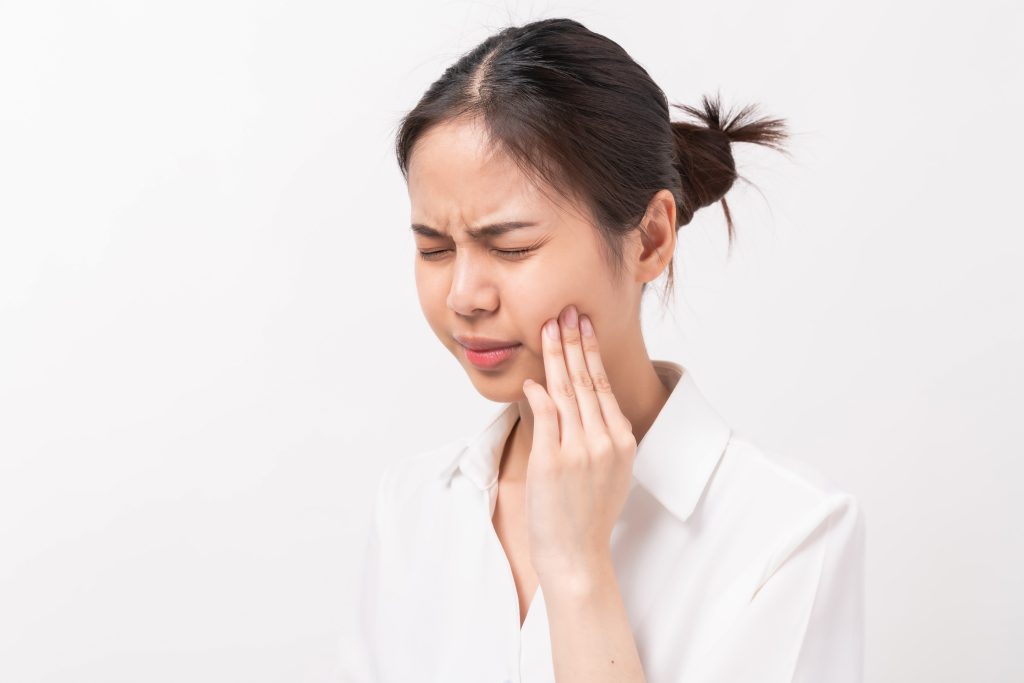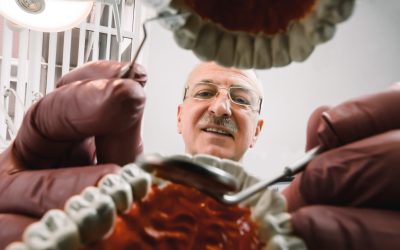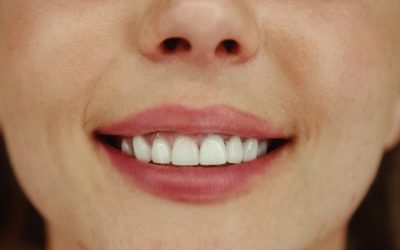January 15, 2026
Dr. Andres de Cardenas
affordable dentist offices near me, Daily Health Tips, dental care, Dental Care Tips, Dental Problems, dental solutions, family dental care, family dental health, foods good for teeth, full mouth reconstruction, full mouth reconstruction before and after, full mouth reconstruction dentist, full mouth reconstruction process, healthy teeth, how dental implants are done, Oral Care, professional denstists, Secure, Smile Makeover, The Miami Cosmetic Dentist
Family Dental Care Miami | Miami Cosmetic Dentist > Blog > affordable dentist offices near me > Why You’re Expecting Jaw Pain After A Filling And How To Relieve It Quickly
Why You’re Expecting Jaw Pain After A Filling And How To Relieve It Quickly
July 11, 2025
Dr. Andres de Cardenas
affordable dentist offices near me, all on 4 dental implants, All-on-four, Cosmetic Dental Care Services, cosmetic dentist Miami, Daily Health Tips, dental care, Dental Care Tips, dental implants, dental implants miami, dental implants pain, Dental Problems, dental solutions, family dental care, family dental health, first teething appearance, healthy teeth, how dental implants are done, jaw pain after filling, Oral Care, professional denstists, Secure, Smile Makeover, The Miami Cosmetic Dentist

“I thought I was done,” many patients say as the numbness wears off. One in three people report a lingering ache in their jaw muscles within hours of having a filling. That tightness under the cheekbone isn’t a mistake. It’s your jaw reminding you it just did a new workout. If you’re experiencing this right now, don’t panic. It’s more common than you might think, and in most cases, it’s temporary and treatable.
At the office of Dr. Andres de Cardenas, DMD, we believe in empowering patients with knowledge so you’re not left wondering, ‘’Is something wrong?” This article will walk you through:
- Why jaw pain after a filling happens
- How to tell when it’s normal (and when it’s not)
- The fastest ways to get relief at home
Let’s unpack what your body is telling you, and how to calm it down.
 Top Reasons Your Jaw May Ache After A Filling
Top Reasons Your Jaw May Ache After A Filling
There are a few primary reasons why your jaw may be sore after getting a dental filling, and most of them have more to do with the process of getting the filling than the filling itself.
For most patients, tenderness peaks during the first evening and declines steadily over the next three days. Warm compresses, gentle jaw stretches, and an over-the-counter anti-inflammatory usually keep the ache in check.
- Prolonged opening keeps the jaw wide for 15 minutes or more, fatiguing muscle fibers and irritating the joint capsule.
- A high restoration can sit a fraction of a millimeter proud, forcing muscles to adapt with every bite.
- Bruised soft tissue from an anesthetic needle may radiate soreness toward the TMJ.
- Existing TMJ disorder magnifies even mild strain.
- Night-time clenching intensifies when the bite feels unfamiliar, adding pressure during sleep.
Pain that lingers beyond a week, sharp sensitivity to temperature, or swelling along the cheek calls for a follow-up; a ten-minute occlusal adjustment often provides near-instant relief.
When Is Jaw Pain After a Filling Considered Normal?
Minor discomfort for a day or two after a dental filling? Totally normal. It’s quite common for patients to feel a little sore or stiff, especially if the procedure required their mouth to stay open for an extended period. Your jaw, like any other muscle group, can experience temporary fatigue and tension after being held in an unusual position for a while.
This is a normal part of the healing process and usually nothing to worry about.
Signs Your Jaw Pain Is Likely Harmless
If you’re wondering whether the discomfort you’re feeling is just part of the post-filling recovery, here are some reassuring signs:
- Mild soreness when chewing or talking: This often comes from minor inflammation in the jaw joint or muscles due to prolonged mouth opening. It should improve steadily each day.
- Slight stiffness in the jaw, especially in the morning: You may notice that your jaw feels a bit tighter after sleeping, especially if you tend to clench or grind your teeth at night, something that can be heightened after dental work.
- A dull, achy feeling near the back of the jaw: This type of discomfort, often compared to post-exercise soreness, is a sign that your jaw muscles were simply overworked during the procedure and are now recovering.
- Pain that gradually decreases within 24 to 72 hours: If each day feels a little better than the last, that’s your body’s way of healing naturally.
- No signs of infection or severe inflammation: Specifically — No facial swelling, No sharp, stabbing, or radiating pain, No fever or chills, and No redness or warmth around the jaw or face.
If your jaw pain fits into these categories, you likely don’t need to take any drastic measures. Rest, soft foods, and gentle care will usually do the trick. While it’s natural to feel concerned when any discomfort lingers beyond the dental chair, most mild jaw soreness after a filling isn’t a red flag. It’s a sign your mouth is doing precisely what it should – healing.
Still, trust your gut. If the pain worsens or doesn’t improve with rest and self-care, don’t hesitate to contact Dr. Andres de Cardenas, DMD. A quick follow-up visit can give you peace of mind and fast relief.
When Jaw Discomfort Crosses The Line, Visit A Dentist
It’s normal to experience some level of soreness after a dental filling, but if discomfort lingers or intensifies, it’s essential to listen to your body. Pain that lasts beyond three days, becomes sharper or more intense, or begins to radiate toward your ear, temple, or neck isn’t part of a typical recovery. These symptoms may indicate a deeper issue, such as a misaligned bite, inflammation of the temporomandibular joint (TMJ), or even nerve involvement.
You may also notice that opening or closing your mouth becomes difficult or uncomfortable, almost as if your jaw is locking up. This limited mobility isn’t just muscle fatigue; it could signal TMJ dysfunction or strain caused by an uneven bite. Swelling, redness, or a warm sensation in the jaw or face are other warning signs. If accompanied by fever or fatigue, they may indicate an infection that requires prompt medical attention.
Even if the pain feels minor, a noticeable shift in the way your teeth come together after the procedure (like your bite feeling “off” or awkward) can place excess strain on your jaw joint. Over time, this can lead to chronic discomfort, clicking or popping sounds, and jaw misalignment.
If any of these symptoms sound familiar, don’t wait it out. At the office of Dr. Andres de Cardenas, DMD, we take post-treatment comfort seriously. We encourage you to reach out if you’re feeling unsure, uncomfortable, or simply need reassurance. Our team is here to evaluate your symptoms, make any necessary adjustments, and provide personalized care that helps you feel better quickly.
When it comes to your health and peace of mind, it’s always better to check in than to tough it out. Contact us today.
Fast Jaw Pain Relief You Can Start at Home
Muscle strain, not toothache, drives most post-filling discomfort. Because strained tissue responds well to heat, movement, and anti-inflammatory medicine, simple home strategies are surprisingly powerful.
Start by applying a warm compress to the side of your face where the soreness is most noticeable. A warm towel or heating pad can help relax the jaw muscles, improve blood flow, and ease tension that may have built up during your dental procedure. Try this for 15 to 20 minutes at a time, a few times throughout the day, especially in the evening when muscle stiffness tends to be most pronounced.
Next, be gentle with your diet. Soft foods are your best friend right now. To care for your teeth at home, opt for options like smoothies, mashed vegetables, scrambled eggs, and soups that require minimal chewing. Giving your jaw a break from hard, crunchy, or chewy foods can prevent additional strain and allow irritated muscles and joints to rest and recover.
If your pain is moderate, over-the-counter pain relievers such as ibuprofen or acetaminophen can offer significant relief. Anti-inflammatory medications help reduce swelling around the temporomandibular joint and lessen the overall sensation of pain. Be sure to follow the recommended dosage. If you have any medical conditions or are taking other medications, consult your healthcare provider first.
Jaw stretches can also be helpful if your muscles feel tight or stiff. Simple, slow movements (such as gently opening and closing your mouth or moving your jaw side to side) can help encourage circulation and prevent stiffness from setting in. Be cautious not to force any motion that causes sharp pain.
And don’t underestimate the role of stress. If you’ve been clenching your jaw without realizing it, especially at night, that tension can contribute to lingering discomfort. Take a few moments throughout the day to consciously relax your jaw, rest your tongue gently against the roof of your mouth, and let your lower jaw hang loose. If you suspect that nighttime clenching or grinding might be contributing to your symptoms, it may be time to ask your dentist about a custom nightguard to protect your teeth and reduce muscle fatigue.
These at-home techniques are often enough to get your jaw back to feeling normal within a few days. However, remember that relief should come gradually. If the pain doesn’t begin to fade, or if anything feels unusual, the team at Dr. Andres de Cardenas, DMD is just a phone call away. You don’t have to guess your way through recovery. We’re here to support you with expert care.
 Preventing Pain Before The Next Appointment
Preventing Pain Before The Next Appointment
Preparation and open conversation are potent forms of preventive care. If you have experienced jaw pain after a previous filling, please mention it during scheduling so the team can plan shorter visits or divide complex treatments into two appointments.
Before the Appointment
- Let your dentist know if you’ve had TMJ issues in the past
- Ask for breaks if your jaw starts to feel tired during the procedure
- Wear a neck pillow to help support your head and neck
After the Appointment:
- Monitor your bite. If something feels off, don’t wait to speak up
- Use warm compresses and jaw stretches as needed
- Schedule a quick follow-up with your dentist if pain lingers
Prevention is all about communication and minor adjustments, and we’re here to guide you every step of the way.
Commonly Asked Questions For Jaw Pain Aches
1. How long should jaw pain last after a dental filling?
Mild jaw discomfort after a filling typically lasts anywhere from a few hours to a couple of days. If your mouth was open for a long time during the procedure, your jaw muscles may feel sore or fatigued, much like they would after overuse. Most patients feel relief within 48 to 72 hours. If the pain persists or worsens beyond that point, it’s time to schedule a check-up.
2. Why does my jaw hurt more in the morning after a filling?
If you wake up with jaw pain, it’s often due to nighttime clenching or grinding, especially if your bite feels slightly different after a filling. Your jaw may be working overtime while you sleep, leading to morning stiffness or soreness. A custom-fit nightguard may help protect your teeth and reduce tension.
3. Is jaw pain after a filling a sign that something went wrong?
Not necessarily. In most cases, post-filling jaw pain is simply the result of keeping your mouth open during the procedure or mild irritation at the injection site. However, if the pain becomes sharp, spreads to your ear or temple, or is accompanied by swelling or difficulty moving your jaw, it could be a sign that your bite needs adjustment or that your TMJ is inflamed. When in doubt, it’s always best to contact your dentist.
4. Can an uneven filling cause jaw pain?
Yes. If your new filling is slightly too high, your bite may become uneven, leading your jaw muscles to compensate when you chew or speak. This imbalance can cause soreness or fatigue in the jaw. The good news? A simple adjustment by your dentist can quickly fix the issue.
5. What can I do at home to ease the pain?
Applying a warm compress, eating soft foods, gently stretching your jaw, staying hydrated, and using over-the-counter pain relievers (if appropriate) can all help reduce discomfort. Avoid chewing gum or tough foods, and try to rest your jaw as much as possible.
6. Should I worry if my jaw clicks or pops after a filling?
Occasional clicking or popping sounds aren’t always a cause for concern, especially if they aren’t painful. However, if these noises are accompanied by pain, locking, or restricted movement, it may be related to TMJ dysfunction and should be evaluated by your dentist.
7. When should I call my dentist about jaw pain?
If the pain doesn’t improve after a few days, becomes more intense, or is accompanied by swelling, fever, limited jaw movement, or a noticeable change in your bite, don’t wait. These symptoms may indicate a condition that requires prompt attention.
Don’t Wait It Out — Let’s Fix It Fast
At the office of Dr. Andres de Cardenas, DMD, we understand how frustrating and confusing post-treatment symptoms can be. That’s why we encourage patients to listen to their bodies and to call us anytime something feels off.
You’re never bothering us by checking in.
We offer personalized, compassionate care that goes beyond the filling. Whether your bite needs a quick adjustment or your jaw requires further evaluation, we’ll help you feel comfortable and confident again.
If you’re in pain, don’t wait for it to “just go away.” Schedule an appointment today, and let us make it right.
Affordable Dental Care Miami affordable dentist offices near me and Life-Changing Best Cosmetic Dentist Best Dental Center in Miami comfort and sustainability Dental Care Dental Health dental health advice Dental Problems how dental implants are done jaw pain after filling pain and discomfort permanent and durable solution Secure
Get In Touch With Us
Recent Posts
- How To Choose A Full Mouth Reconstruction Dentist
- Full Mouth Reconstruction: Before And After Results You Should See
- Full Mouth Reconstruction: How It Can Transform Your Smile And Oral Health
- Achieve A Bright Smile: How White Braces Are Changing The Game
- From Subtle Enhancements To Dramatic Results: Exploring Today’s Top Cosmetic Dental Treatments
Related articles
December 9, 2025
Dr. Andres de Cardenas
affordable dentist offices near me, Cosmetic Dental Care Services, cosmetic dentist Miami, Daily Health Tips, dental care, Dental Care Tips, Dental Problems, dental solutions, family dental care, family dental health, foods good for teeth, full mouth reconstruction, full mouth reconstruction before and after, full mouth reconstruction process, healthy teeth, how dental implants are done, Oral Care, professional denstists, Secure, Smile Makeover, The Miami Cosmetic Dentist
Full Mouth Reconstruction: Before And After Results You Should See
September 19, 2025
Dr. Andres de Cardenas
affordable dentist offices near me, Cosmetic Dental Care Services, cosmetic dentist bonding, cosmetic dentist Miami, Daily Health Tips, dental care, Dental Care Tips, Dental Problems, dental solutions, family dental care, family dental health, first teething appearance, foods good for teeth, full mouth reconstruction, full mouth reconstruction process, healthy teeth, how dental implants are done, Oral Care, professional denstists, Secure, Smile Makeover, The Miami Cosmetic Dentist


